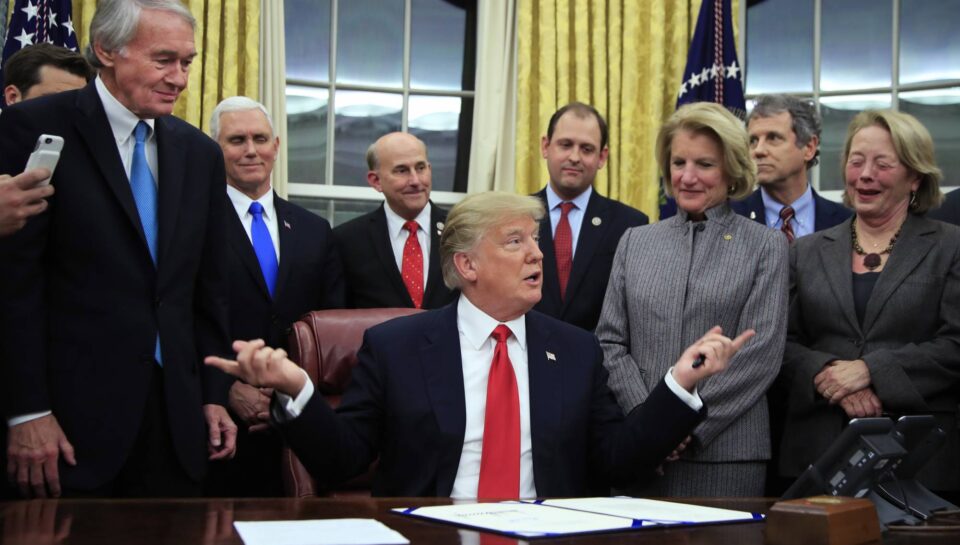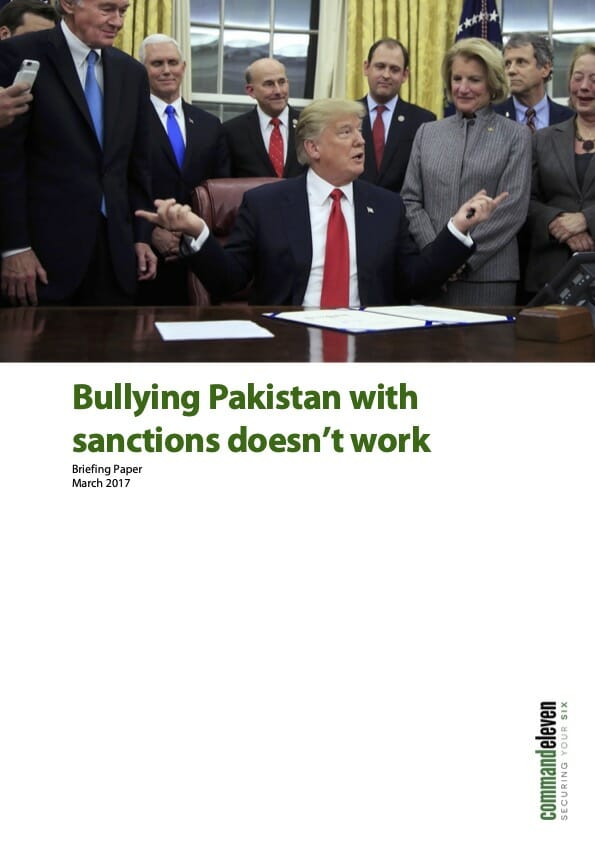Executive Summary
Financial Action Task Force (FATF) of the G7 countries has threatened Pakistan with sanctions if it “fails to comply with necessary actions against terrorism” (Corr,2017). It has, rather magnanimously, given Pakistan three months’ time to comply or else face the music. One can only say that such orchestrated moves are part of the larger narrative which paints Pakistan in dark colors to please India, a 1.3 billion plus market for G-7 countries. This is not the first instance where G7 countries have shown their bias towards Pakistan.
In the past also, their leaders had been insinuating against us in order to grab lucrative contracts from India, especially in the defense sector.
To add humor to this news, Afghanistan has also threatened to seek UN sanctions against Pakistan for its hallucinatory support of the Taliban terrorists. Afghanistan’s economy is heavily dependent on its trade with Pakistan, and the land and sea routes through Pakistan for access to the rest of the world.
If Afghanistan joins the G7 led sanctions against Pakistan, with India as the main instigator, it will only be shooting itself in the foot. It should remember what had happened to Nepal when India, in retaliation to a weapons deal between China and Nepal few years ago, had stopped the transit trade with Nepal. As for India, it is dying to gain land access through Pakistan to reach the Central Asian markets. Any coercive move by India, in concert with the G7, will close the window of opportunity for India forever.
Anders Corr’s piece on the purported sanctions is a typical example of West’s perpetual realignment of policies, double dealing, and doublespeak, to justify its shifting interests.
US and its allies supported Pakistan during the so-called Afghan Jihad because they, according to Brzezinski (1998), needed this country to “sow shit in the Soviet Union’s backyard”. During the 21st Century, they need India to checkmate China, hence the present hullabaloo against Pakistan.
The Taliban, as the world knows, are the avatar of the Afghan Mujahideen who were bankrolled by the CIA during the Cold War period to fight its war in Afghanistan. One should remember that during the height of the Afghan Jihad, Ronald Reagan had likened the Mujahideen to the founding fathers of the United States. The Taliban appeared on the West’s radar in the wake of the civil war, which engulfed Afghanistan after the withdrawal of the Soviet forces from this war-torn country. Central Asia is the home of the world’s second largest oil reserves. So, the Taliban were propped up by the US and its allies to act as the vanguard for protecting the West’s interests, particularly the projected pipelines which were being planned to pump Central Asian oil and gas to the refineries in the US and Western Europe. One of its major investors was the Union Oil Company of California (Unocal), which merged with and became a subsidiary of Chevron in 1995. To achieve its aims, Unocal, even flew a selected cadre of the Taliban to its US headquarters for training in pipeline security (Rozoff,2010). The overall US strategy to grab the Central Asian oil and gas has the following salient features:
- Tap the Caspian oil and gas reserves, while at the same time, deny the same to Russia and China.
- Build pipelines that would skirt Russia on the way to the Black Sea and the Mediterranean.
- Promote Kazakh oil to western markets without Russian interference.
- Promote the Turkmenistan-Afghanistan- Pakistan-India gas pipeline, connecting the gas resources of Central Asia to the surging economies of South Asia. Such a line would deprive Iran of transit fees for Turkmen gas crossing its territory while capturing the South Asian gas market coveted by Iran.
Unocal opened an office in Kandahar, the “spiritual birthplace of the Taliban,” in 1996 as the latter were completing their conquest of Afghanistan. In 1997, a senior Taliban delegation arrived in the U.S. to meet with Unocal officials. At the time a Unocal spokesman said “the Taliban were expected to spend several days at the company’s headquarters in Sugarland, Texas” and it was confirmed that “Unocal says it has agreements both with Turkmenistan to sell its gas and with Pakistan to buy it. ”So, whenever it suits the US and its allies, they adopt the Taliban, and then discard them at will.
Pakistan Army and Air Force are fighting the Taliban for almost a decade and have destroyed their sanctuaries in Pakistan’s Federally Administered Tribal Areas (FATA). May be, in the past, the army was keeping some factions of the Taliban as assets, even as the US, India, and Afghanistan have their proxies in Pakistan’s border regions. But, since the launching of operation Zarb-e-Azb, an across the board action is being taken against all the terrorist groups. It takes two to tango (in this case, it takes three, since Afghanistan’s NDS is playing as active a role as India’s RAW in destabilizing Pakistan).
Corr, alleges that while terrorist attack fatalities in Pakistan have decreased since 2013, they have increased in Afghanistan over the same period. From this he concludes that Pakistan based terrorists are now redirecting their efforts to Afghanistan. He conveniently forgets that during the same period TTP and its confederates, from their Afghan sanctuaries, have launched numerous attacks in Pakistan, resulting in hundreds of casualties. Mullah Fazal Ullah, the TTP Grandmaster, is hiding in Afghanistan. He, along with the Indian sponsored Balochi separatists, is ensconced in safe houses in various Afghan cities and enjoying full NDS and RAW hospitality.
It makes little sense when India accuses Pakistan of sponsoring terrorism in India. While doing so, the Indian leaders deny the fact that they also have their fingers deep in the terrorist pie. How is this happening? Quoting a former Indian police officer, Rajnath (2004) writes that both India and Pakistan use the underworld to undermine each other even as their armies use smugglers to infiltrate into the other’s territory to spy on the movements of the enemy army. Indian proxies operate from bases located in Ganga Nagar, Bhachbhar, Birsilpur and Lunkha in Rajasthan.
In a Press Trust of India report published in Express Tribune (2014), India’s interior minister Rajnath Singh blamed that Pakistan was providing shelter to Dawood Ibrahim who was hiding along the Pak-Afghan border. Dawood Ibrahim and Chota Rajan are two Mumbai underworld dons who used to operate together in the notorious Indian organized crime syndicate “D-Company”. The Syndicate had been actively involved in money laundering through sponsoring the Bollywood film industry, cricket match fixing (particularly IPL), drug trafficking, extortion, and terrorism in South Asia, including Pakistan. The Syndicate flourished in the narcotics business by spreading its tentacles into the Far East, Middle East, South East Asia, South Africa, and Australia. It was involved in smuggling of synthetic drugs such as Methaqualone, Acetic Anhydride, Pseudoephedrine, and other chemical ingredients used in production of Mandrax, Ecstasy, and Morphine, etc. The money earned from narcotics was provided to the Indian intelligence agencies for their South Asian and overseas terror financing.



